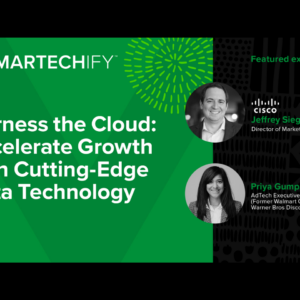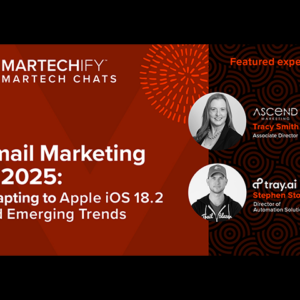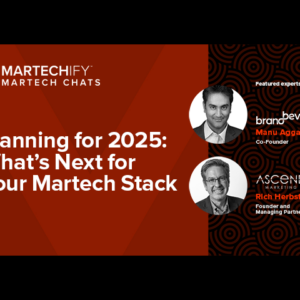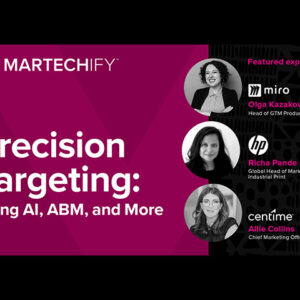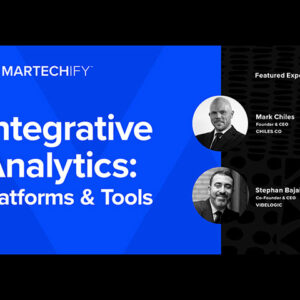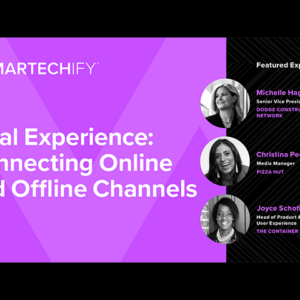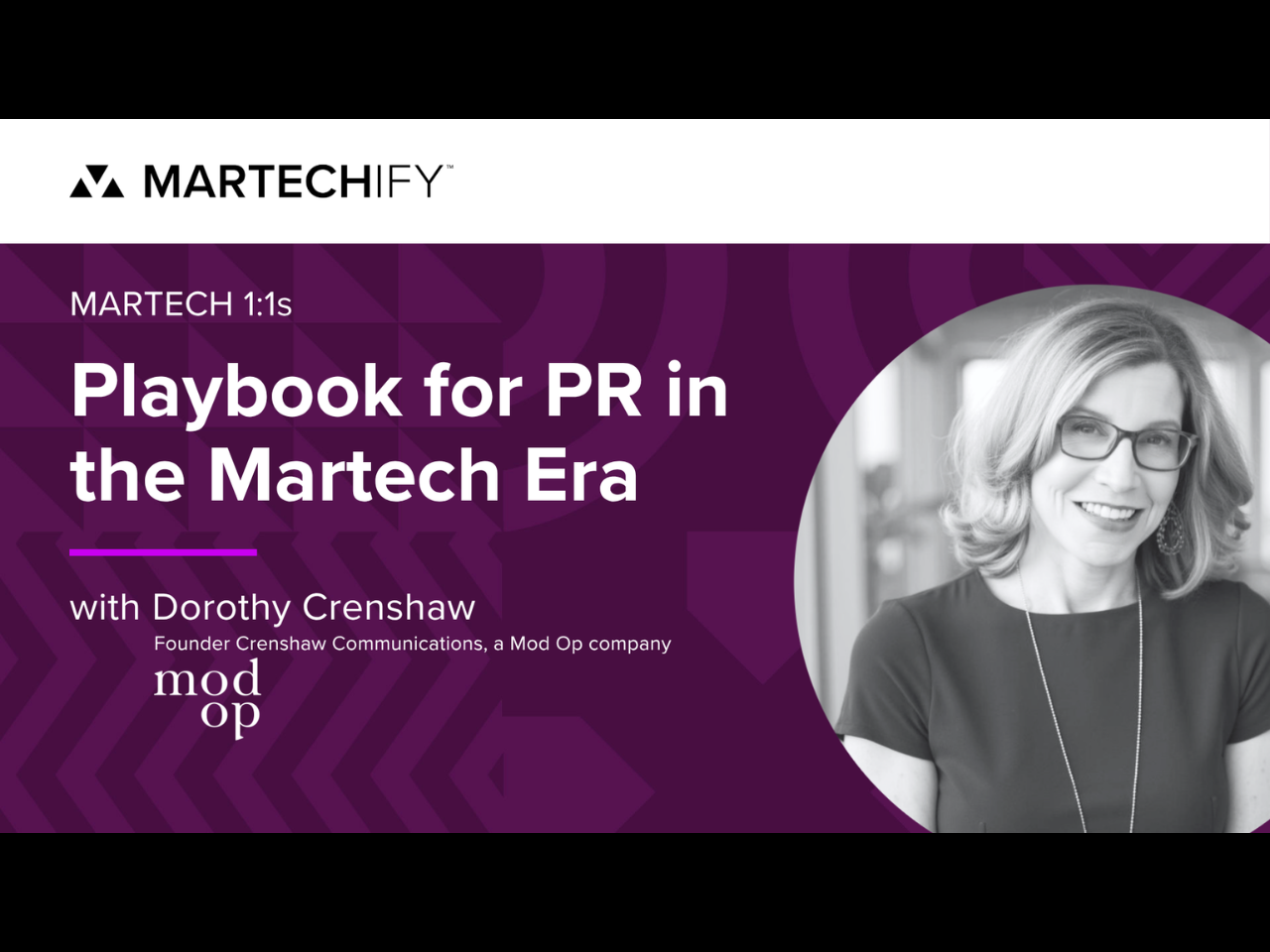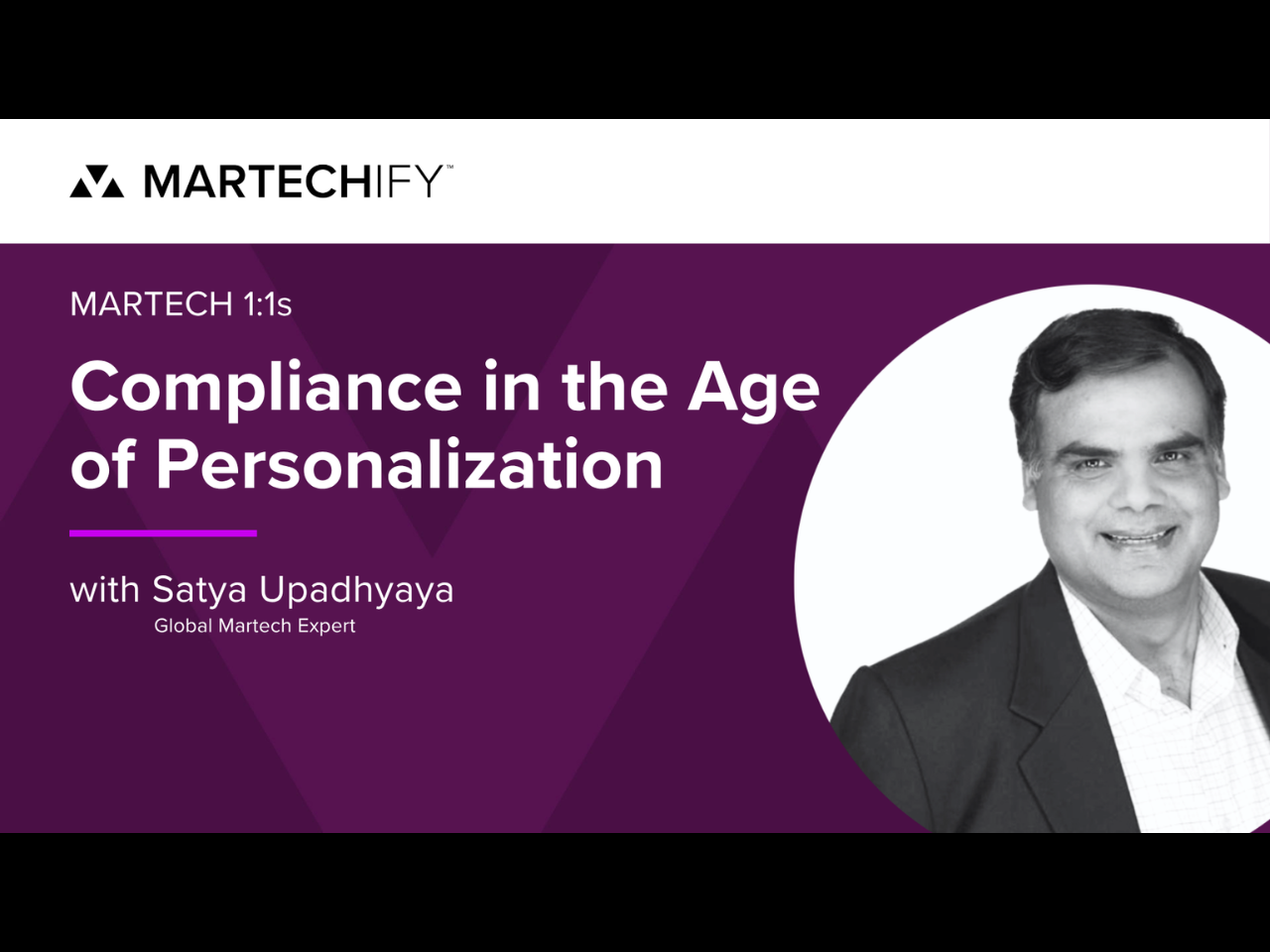Campus to Career: Keeping Marketing Grads Competitive
- Dr. Ethan Pew, Director, MS Marketing Program at The University of Texas at Austin
- AI and Automation, Managing Your Career, Other Martech, Strategy and Trends
As recent shifts in the economy and job market continue to unfold, we’ve seen a growing number of inquiries from our community seeking support for recent graduates and strategies to help them stay competitive.
To explore this topic, we sat down with Dr. Ethan Pew, Director of the Master of Science in Marketing (MSM) Program at the University of Texas at Austin, and discussed how academia is keeping pace with industry needs and what students can do to future-proof their careers.
To explore this topic, we sat down with Dr. Ethan Pew, Director of the Master of Science in Marketing (MSM) Program at the University of Texas at Austin, and discussed how academia is keeping pace with industry needs and what students can do to future-proof their careers.
Watch the full interview with Dr. Ethan Pew, where he shares how students can future-proof their careers. If remaining competitive in the current job market is important to you, this is a must watch interview!
Education vs. training: Learning how to think
Dr. Pew echoed what other higher education and industry leaders have been saying all along: Yes, it is important to learn the latest tools and technology, but it is even more important to learn how to learn and to think. “We’re primarily focused on foundational educational development. We want students to learn how to think.”
While students gain hands-on experience with platforms like Excel, RStudio, Python, SQL, Power BI, and Tableau, Dr. Pew emphasizes that the true objective is building a flexible mindset that allows students to adapt to any marketing tech stack their future employer uses.
“The most important platform to know is the one your future employer uses.”
While students gain hands-on experience with platforms like Excel, RStudio, Python, SQL, Power BI, and Tableau, Dr. Pew emphasizes that the true objective is building a flexible mindset that allows students to adapt to any marketing tech stack their future employer uses.
“The most important platform to know is the one your future employer uses.”
Exposure to martech tools
Rather than mastering one set of tools, students are exposed to a diverse ecosystem depending on faculty expertise and industry relevance. That includes Salesforce, Pardot, Marketo, HubSpot, and Slack as part of their daily communications.
“It’s not a primary objective to ensure students master a particular platform, but to expose them to platforms that are useful.” This exposure prepares students to confidently walk into varied corporate environments and contribute from day one.
“It’s not a primary objective to ensure students master a particular platform, but to expose them to platforms that are useful.” This exposure prepares students to confidently walk into varied corporate environments and contribute from day one.
The employer connection: Building for the market
With advisory councils and regular industry input, McCombs School of Business maintains a direct line to employers. “We have these advisory councils that tell us what they want students to know and how they’re hiring,” said Dr. Pew.
Interestingly, hiring isn’t dominated by a few big-name companies. Instead, UT Austin graduates are spread across many different employers, with most companies hiring just one or two students each cycle. Over three years, 97 unique companies each hired a single student.
“It’s often highly specialized,” said Dr. Pew. Employers are saying, “We want someone who can do this particular thing, and we have one spot.” This trend highlights the growing importance of personal branding, niche skill-building, and self-awareness in career planning.
Interestingly, hiring isn’t dominated by a few big-name companies. Instead, UT Austin graduates are spread across many different employers, with most companies hiring just one or two students each cycle. Over three years, 97 unique companies each hired a single student.
“It’s often highly specialized,” said Dr. Pew. Employers are saying, “We want someone who can do this particular thing, and we have one spot.” This trend highlights the growing importance of personal branding, niche skill-building, and self-awareness in career planning.
Industry trends: Where are students going?
Hiring trends shift year to year. In recent cohorts, marketing students have joined retailers, agencies, financial services, and health-related companies. The common thread is adaptability. Students are trained to find alignment between their interests and market needs.
“You’re not necessarily competing with Goliaths like Google or Meta… There are phenomenal students excited about a wide range of opportunities.”
Dr. Pew also highlighted the program’s entrepreneurial spirit. Capstone projects encourage students to solve real problems using AI and martech tools.
One recent project involved optimizing email campaigns with AI for a large tech company, offering fresh insights even seasoned teams hadn’t considered. Another standout student landed a dream job in a golf VR startup, a company founded by McCombs grads that’s reshaping how consumers interact with the sport.
“It’s really about workflows that make other people better. That’s the entrepreneurial mindset,” reflected Dr. Pew.
“You’re not necessarily competing with Goliaths like Google or Meta… There are phenomenal students excited about a wide range of opportunities.”
Dr. Pew also highlighted the program’s entrepreneurial spirit. Capstone projects encourage students to solve real problems using AI and martech tools.
One recent project involved optimizing email campaigns with AI for a large tech company, offering fresh insights even seasoned teams hadn’t considered. Another standout student landed a dream job in a golf VR startup, a company founded by McCombs grads that’s reshaping how consumers interact with the sport.
“It’s really about workflows that make other people better. That’s the entrepreneurial mindset,” reflected Dr. Pew.
Advice to students and recent graduates
Dr. Pew closed with advice that resonates across all career stages: “Be curious and ask lots of questions. Develop a perspective and point of view, and you’ll have something interesting to contribute.” And when it comes to networking, “Build relationships before you need them.”
This mindset doesn’t just open doors—it lays the groundwork for a meaningful and resilient career in marketing.
This mindset doesn’t just open doors—it lays the groundwork for a meaningful and resilient career in marketing.

